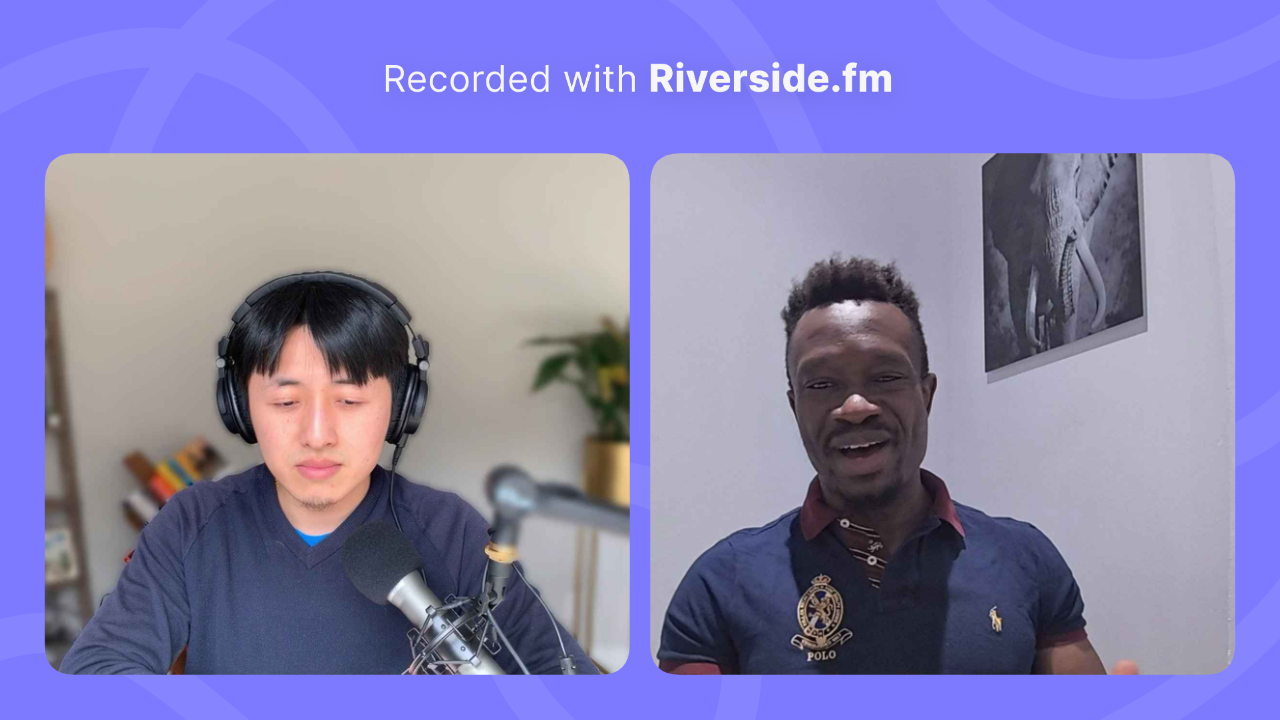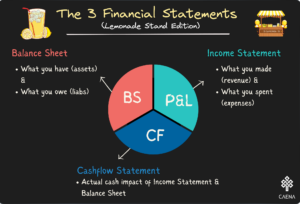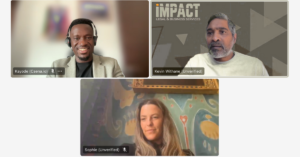SaaS enabled marketplace that provides founders with an automated financial modelling solution to simplify the fundraising process for startups
Episode Summary:
On today’s episode, we have Kayode Odeleye, Founder and CEO of Caena.io, a UK-based SaaS enabled marketplace that provides founders with an automated financial modelling solution and simplifies the fundraising process for startups. Since its founding last year, the company has built a diverse team of 8 people across 6 cities. Kayode and his co-founder are on a mission to make capital more accessible to companies everywhere.
Topics Covered by Kayode Odeleye in this Episode:
- The origin story of how Kayode founded the company
- What problem is Caena solving and why Kayode thinks there’s a huge market demand for it
- The big vision for Caena as the automated financial modelling solution founders need and why it simplifies the fundraising process
- Why Caena is the next big thing and such an exciting opportunity
- The biggest hurdle faced by Kayode right now
- Overview of how Caena works and its business model
- The initial GTM strategy and Kayode’s plan to grow and scale
- Kayode summarizing lessons learned and takeaways so far in his entrepreneurial journey as first time founder
Episode Transcript – edited for conciseness
Chandler: Welcome to the solo VC podcast. I’m your host Chandler Wang. Building a venture scale company from an idea to 10 million plus in revenue and beyond is hard. The Solo VC podcast takes you inside the world of angel investors and founders building and funding technology startups at their earliest stage and shares their entrepreneurial stories.
On today’s episode, we have Kayode, founder and CEO of Caena.io, a UK based SAS- enabled marketplace that provides founders with an automated financial modelling solution that simplifies the fundraising process. Since its founding last year, the company has built a diverse team of eight people across six cities, Kayode and his co-founder are on a mission to make capital more accessible to companies everywhere. Hope you enjoy the episode. Here we go. Welcome to the show, Kayode
Kayode: It was nice coming across you on twitter. Thank you for having me on the show.
Chandler: Why don’t we get started with just you know a little bit intro about yourself. Tell us about your background walk us through kind of the history. Why did you decide to do this? And how do we get to this point.
Kayode: my journey to founding Caena started back in Nigeria. I joined Standard Chartered Bank out of school. I had started a publishing business while I was in college and really wanted to be a full-time entrepreneur. My foray into banking was meant to be temporary to get some experience but ended up being a 14- year journey. The bulk of my career was in Investment Banking where I got the idea for Caena. There was a lot of frustration with the investment banking processes – it was slow, time-consuming, and unnecessarily complex.
I moved to London in 2020 and later that year left the bank. With the conviction I had that there was an opportunity to bring innovation to the space, I set up a company, found my co-founder in February 2021 and that’s how Caena came to be.
Chandler: okay, so you had some investment banking experience was that in the UK or back in Nigeria?
Kayode: It was a combination. I started in the UK, went back to Nigeria for two years, then I spent three years in Dubai.
Chandler: What about the company itself? Tell us more about Caena.io. What does your company do? And what kind of problem is it solving
Kayode: we started off from scratch in February last year, I have the domain expertise but I needed a co-founder who was very good with tech. From the start, we very quickly identified the pain point to start solving – financial modelling. We decided to start with small and medium businesses as the need is greater. They don’t have the funds to hire consultants or an in-house CFO so we thought why not use technology to deliver services that are currently beyond their reach but which would benefit them greatly.
We released the first version in September last year and since then we have hundreds of small businesses and startups using the platform to build financial models. The main use cases are early-stage investor conversations and accelerator applications which most founders without analytical backgrounds struggle with. Our platform is fully automated, affordable with the added benefit that they can understand the numbers and be able to have an intelligent conversation with investors.
Chandler: Is this platform is for both investors and founders?
Kayode: Yes, it’s for both companies and investors. Like I mentioned, my own background is on the other side in investment banking where I saw how the processes were archaic and broken. Our approach is to digitise the workflows across the private markets for both companies and capital providers. In terms of what we have now, startups can build models and share directly with investors on our platform eliminating several steps from the process. In addition, we are building other tools that will help startups find investors that are most likely to invest in them. On the other hand, helping investors solve this problem where they spend a lot of time and energy just sifting through applications.
Chandler: why is there a need to automate financial modelling versus currently how do people do it currently? Is it just pull up an Excel sheet? They plug some numbers into a template. Like, why do you see a need for automated financial modelling service?
Kayode: we started Caena with the idea that spreadsheets aren’t the most ideal tool for complex tasks like financial model. But I underestimated how difficult it is for founders without analytical backgrounds to work with spreadsheets – even when there is a template that works. One of the most useful pieces of feedback I’ve received came from a founder who used an early version of our product for her SEIS Advance Assurance application. Her comment was “your platform is easier to use than spreadsheets, but you need to think of people like me – I hate numbers and so you need to make your product idiot-proof.” We have adopted that as our guiding principle, to create a tool so simple every single founder can create their own models and understand the drivers of their business.
Chandler: Yeah, it’s interesting. I think you touched on this, but what’s the big vision for this space?
Kayode: For me, it is about solving problems. I would like to define it in terms of access to capital for entrepreneurs. The complexity and cost are barriers for a lot of founders. For instance, a founder in the UK needs maybe 2000 pounds to build a model. Our platform enables founders to obtain the same output over 90% cheaper and so as we enable more founders then we are contributing to capital being fair, accessible, more transparent.
Chandler: From your perspective, what are the biggest issues and pinpoints right now for your company?
Kayode: it’s ironic but the biggest issue we face is one we are trying to solve – it’s super hard for an early to raise capital required to build a business. Headline news on Twitter or LinkedIn and give the impression that you can raise it on the back of a pitch deck or an idea. It happens. But you know, there is a very, very prescriptive list that can do that. If you’ve worked in a big tech company, exited a business previously or otherwise connected to VCs then it’s relatively easy. For everyone else it is terribly difficult.
Chandler: where do you go from here? How are you growing both sides of the marketplace?
Kayode: we have focused on the startup side over the past 6 months. The financial modelling tool helps founders with investor conversations and accelerator applications. We’ve also had UK users use Caena output for their HMRC advanced assurance applications. With the startup tool working fine, we are now building investor tools which will help VCs, accelerators, and other investment firms source deals, evaluate startups and manage their portfolio.
Chandler: That’s interesting. You’ve raised a little bit capital, outside capital. I think you mentioned your experience. So far, raising funding, maybe just give the audience a little bit insight into how that environment has evolved since you started funding up to this point and any plans for future financing?
Kayode: when I started off raising a pre-seed round last year, I thought it should be possible to raise capital especially as there was a lot of money going around. And so many VCs saying they fund at pre-seed stage. Like I mentioned earlier, it is very hard to raise institutional capital at early stage for an average founder. For us, we pivoted and focused on what we could raise from friends and family which was a relatively small amount – just over GBP 70,000. This is in additional to my savings I had poured into the business to build the MVP. The good news is raising a small amount forced us to be frugal and capital efficient as we achieved various milestones. We are now raising a Seed round and hope to be able to raise institutional capital now that we have tangible traction to show for it.
Chandler: So as we’re wrapping up here, any big takeaways you have, you wanted to share any relevant messages you wanted to share about your journey?
Kayode: the biggest thing for me is being open – to opportunities and in approaching the challenges of building a business. For instance, speaking with you today came about because I reached out to one of your tweets. Opportunities will arise, as a founder you don’t know if it will work out or not but you have to give it your best shot. It’s, my approach to networking and to life in general, if something doesn’t work, just try again.
Chandler: Where’s the best place for people to know more about your company? See not IO. And I guess connect with you as well. If if they want to.
Kayode: I’m on twitter and on LinkedIn, our website is Caena. I encourage everyone who has an idea they are working on to give the platform a try. It’s free and easy to sign up.
Chandler: That’s awesome. Yeah, I’ll be sure to link it up and share what you just described in the show notes as well on the website. Thank you so much for taking the time to come on the show today. Kayode.
Kayode: Thank you so much. I was a real pleasure speaking with you.
Thank you so much for listening to this episode of the solo VC podcast. If you like what you heard, go rate and subscribe to the podcast on our website at https://solovc.com. If you found something valuable or interesting, definitely share with your friends. We’d love to hear your feedback as well. So follow us and reach out on Twitter. We do this show every week so stay tuned for more episodes. And till next time





